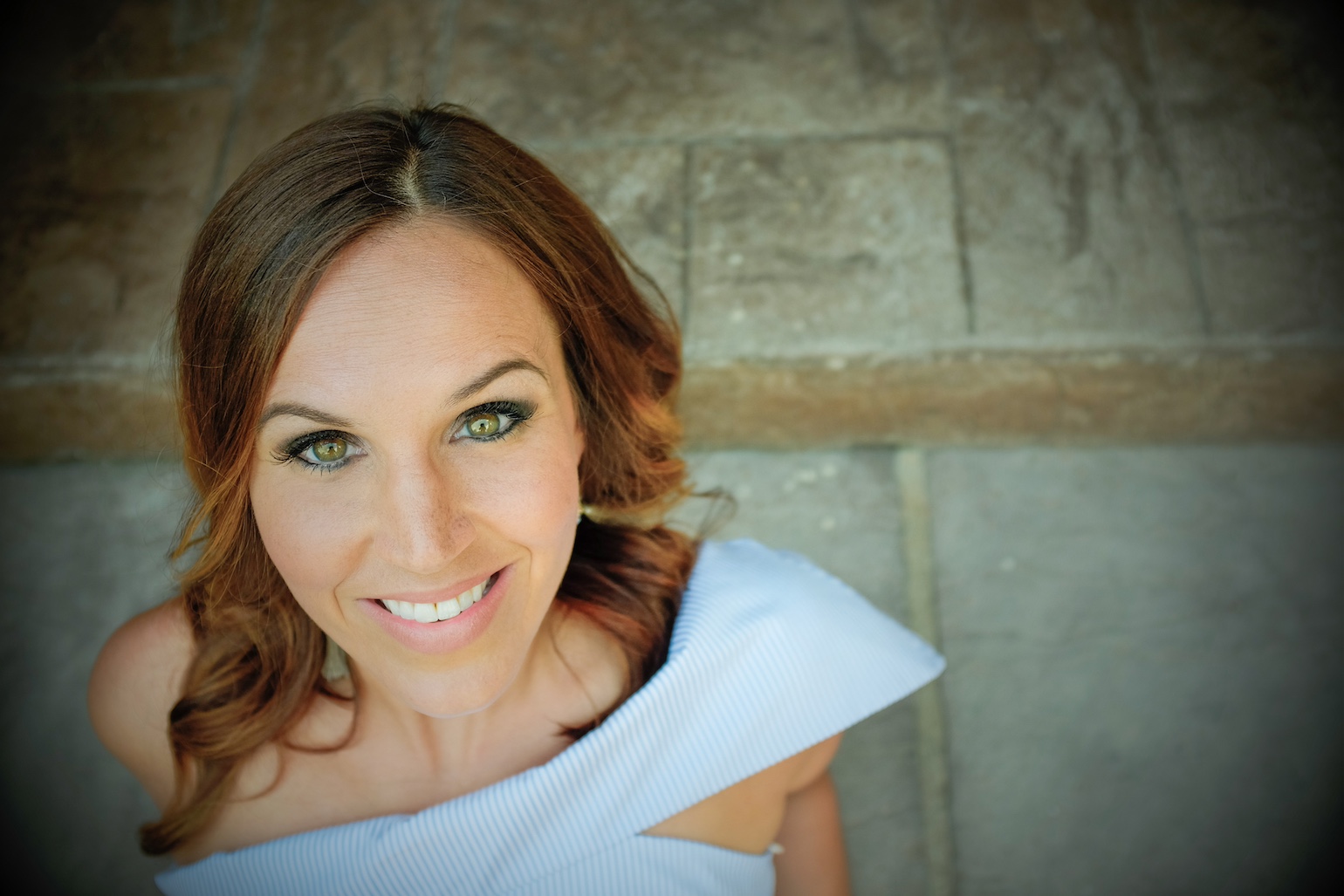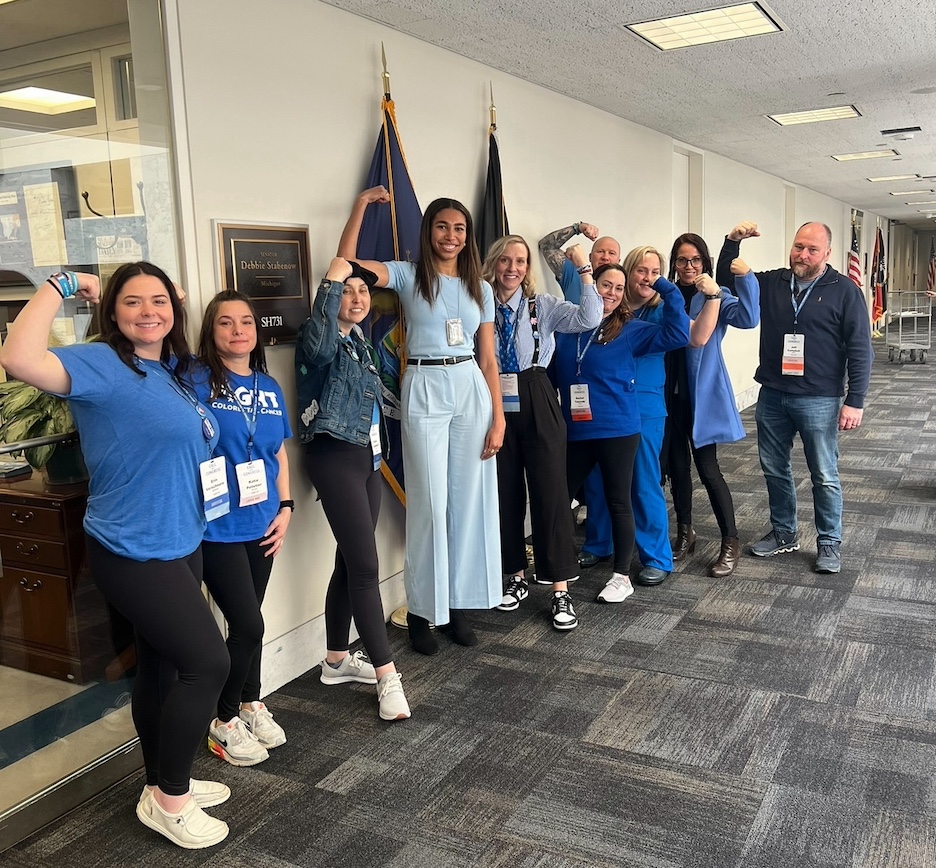Wayne State graduate student with Lynch syndrome pursues medical physics to combat cancer

When Shannon Costello went to the doctor complaining of severe abdominal pain after eating, she was treated for an ulcer. The second doctor said it was her gall bladder and had it removed. The pain did not subside. It wasn’t until she met with a gastroenterologist that she was questioned at length about her family’s medical history.
Her great-grandfather passed from colorectal cancer (CRC) at 35. Her mom was diagnosed with CRC at 44 and would later overcome it. But at the age of 29, Costello thought she was too young to have cancer.
The gastroenterologist ordered a CT scan. On her drive home, Costello received a phone call urging her to schedule an emergency colonoscopy.
In August 2015, she was diagnosed with stage II CRC.
“No one was talking about younger onset colorectal cancer like they are today,” she said.
The National Institute of Cancer reports that, today, CRC is tied with brain and nervous system cancers for the second leading cause of cancer deaths with an 11% mortality rate, behind breast cancer at 13%.
The official screening age for colorectal cancer has dropped from 50 to 45 in recent years, but is it young enough?
“Colorectal cancer is mostly preventable when caught early, and that is why younger people are typically diagnosed late—because they are not routinely screened.”
Costello was one of the lucky ones. She has been cancer-free going on nine years but knows things might have turned out differently had she not continued pressing for answers.
Preventative measures
Because of her family’s medical history, Costello underwent genetic testing a month after her diagnosis. She tested positive for a genetic DNA mismatch repair (MMR) mutation called Lynch syndrome—the most common form of hereditary CRC.
“MMR targets mispaired bases within genetic replication that arise through errors or DNA damage. The mutated version can create significant errors within the replicated genetic coding that can lead to cancer. My mutation in particular makes me more susceptible to 12 different cancers that I’m screened for every year.”
She immediately informed her family members.
“I had one family member who didn’t want information regarding the mutation. A month later, that family member was diagnosed with stage IV colon cancer and Lynch syndrome. A little over 4 months later, that family member passed from colon cancer.”
34 days later on May 8, 2016, Mother’s Day, Costello’s mother passed away unexpectedly from complications of heart disease.
It was one of the most trying times of Costello’s life.
“I had a lot of grief. I wanted to do something,” she said. “That’s when I started colorectal cancer and Lynch Syndrome advocacy.”
She got involved with organizations such as Fight CRC, The Colon Club, Colorectal Cancer Alliance, Colorectal Cancer Coalition, The Patient Story, and Alive and Kickn spreading the word about CRC.
“I wanted everyone to know that it can happen at any age, to encourage and lessen the taboo of screenings.”

They have never been more important across the board than they are today.
The American Cancer Society reports that CRC cases have more than tripled in teens between the ages of 15 and 19 from 1999 to 2020.
The reason for the surge is unknown, Costello said, which is why advocacy groups are pushing for more funding.
The organization Fight Colorectal Cancer reports that among the top five cancer killers, CRC is the only one that does not have a dedicated funding stream in the Department of Defense Congressionally Directed Medical Research Program. Instead, CRC competes for funding with a dozen different cancers.
“In the eight years that I have been working in the advocacy space, I’ve lost count of the number of phenomenal friends I’ve made and subsequently lost to colorectal cancer,” Costello said. “I started to get angry. I realized that social change, educational change, and policy change were not enough for me. I wanted to attack cancer at its most fundamental level: by science.”
Where there’s a will
Costello enrolled at Monroe County Community College in 2019, then at the University of Toledo in 2021 to complete her bachelor’s in physics.
“I knew I was somehow going to go to grad school somewhere for something relevant to oncology but wasn’t sure what at that point.”
A mother of three, she said pursuing higher education has been hard at times, but not impossible.
“There were a few semesters where I would go to bed at 10 p.m. and wake up at 2 a.m. every single day. There were times when I had to miss ball games or do homework during one of their tournaments, and it broke my heart to have to do that, but in the end, I hope the lessons about tenacity stick with them,” she said. “They would see me dedicating myself to doing the hard work and eventually were there to watch me walk across that first stage and reach that goal.”
Costello graduated with her bachelor’s in 2023. When it came time to look at graduate programs, only one checked all her boxes.
“The medical physics department at Wayne State University not only cares about its students’ professional but also personal development. There are dedicated and knowledgeable professors, several areas of research, and state-of-the-art facilities.”
Costello recently wrapped up her first year as a M.S. student at WSU.
“My career aspirations are to become the best board-certified medical physicist that I can, or, as I like to tell people on a comical level, I am aspiring to be a mad scientist who vengefully tries to destroy every malignant cell possible using radiation.”